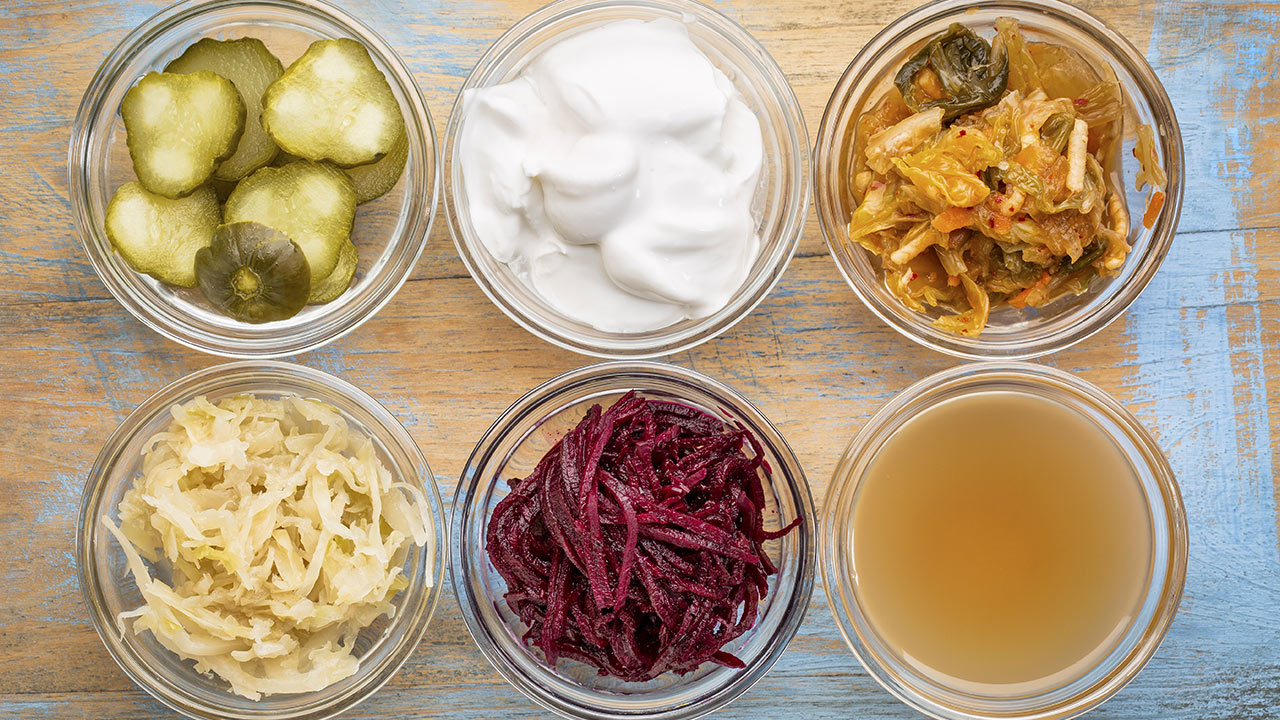The Benefits of Fermented Foods: How They Promote Gut Health

Hey Angels and Alphas,
Fermented foods have been a staple in many cultures around the world for thousands of years. From kimchi in Korea to sauerkraut in Germany, fermented foods have been used not only for their flavor but also for their potential health benefits.
One of the main reasons fermented foods are so beneficial is because they contain live, active cultures of bacteria known as probiotics. These beneficial bacteria help populate the gut microbiome, which is the collection of microorganisms that live in our digestive tract. A healthy gut microbiome is essential for overall health, as it helps with digestion, immune function, and even mental health.
So what are some of the specific ways that fermented foods can promote gut health? Here are a few examples:
Improved digestion: Fermented foods are rich in enzymes that help break down food and make it easier for our bodies to digest. This can help reduce symptoms of digestive issues like bloating, gas, and constipation.
Enhanced nutrient absorption: The beneficial bacteria in fermented foods can help improve the absorption of nutrients from our food. For example, they can help us better absorb vitamins like B12 and K2, which are essential for a range of bodily functions.
Boosted immune function: Our gut microbiome plays a critical role in our immune system, and the beneficial bacteria in fermented foods can help support a healthy immune response. Research has shown that probiotics can help reduce the risk of infections like colds and flu, as well as autoimmune diseases like rheumatoid arthritis.
Reduced inflammation: Inflammation is a natural response to injury or infection, but when it becomes chronic it can contribute to a range of health issues. Some research suggests that the beneficial bacteria in fermented foods can help reduce inflammation in the body, potentially helping to prevent conditions like heart disease and cancer.
So which fermented foods should you be incorporating into your diet? Here are a few examples:
Yogurt: Yogurt is one of the most popular fermented foods, and for good reason. It’s rich in probiotics and also contains calcium, vitamin D, and other essential nutrients. When choosing yogurt, look for varieties that contain live, active cultures and little to no added sugar.
Kimchi: Kimchi is a spicy Korean dish made from fermented vegetables like cabbage, radishes, and scallions. It’s a great source of probiotics and also contains vitamins A and C, as well as antioxidants.
Kefir: Kefir is a fermented drink that’s similar to yogurt but thinner in consistency. It’s made by adding kefir grains (a combination of bacteria and yeast) to milk or water, which ferments the liquid and creates a tangy, slightly effervescent beverage. Kefir is a great source of probiotics and also contains calcium and vitamin D.
Sauerkraut: Sauerkraut is a German dish made from fermented cabbage. It’s rich in probiotics and also contains vitamin C, fiber, and other beneficial nutrients.
Kombucha: Kombucha is a fermented tea that’s become increasingly popular in recent years. It’s made by adding a SCOBY (a symbiotic culture of bacteria and yeast) to sweetened tea, which ferments the liquid and creates a tangy, slightly sweet beverage. Kombucha is a great source of probiotics and also contains antioxidants.
In conclusion, incorporating fermented foods into your diet is a great way to promote gut health and support overall health and wellness. These foods are rich in probiotics, which help populate the gut microbiome and provide a range of potential benefits, from improved digestion to reduced inflammation.
By incorporating foods like yogurt, kimchi, kefir, sauerkraut, and kombucha into your meals and snacks , you can help support a healthy gut microbiome and potentially reduce the risk of a range of health issues.
It’s important to note that not all fermented foods are created equal. Some store-bought varieties may contain little to no live cultures, while others may be high in added sugars or sodium. When choosing fermented foods, it’s best to look for varieties that are made with simple, whole-food ingredients and little to no added sugars or preservatives.
In addition to incorporating fermented foods into your diet, you can also support a healthy gut microbiome by eating a varied diet rich in whole foods like fruits, vegetables, whole grains, and lean proteins.
You can also consider taking a probiotic supplement, although it’s important to choose a high-quality brand and talk to your healthcare provider before starting any new supplement regimen.
In summary, fermented foods are a great way to support gut health and potentially reduce the risk of a range of health issues. By incorporating foods like yogurt, kimchi, kefir, sauerkraut, and kombucha into your diet, you can help populate your gut microbiome with beneficial bacteria and enjoy a range of potential health benefits. Just be sure to choose high-quality, whole-food varieties and eat them in moderation as part of a balanced diet.




